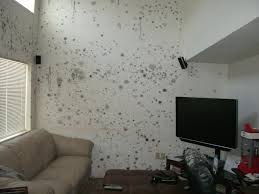For all the concern over second-hand smoke and other toxins that confront us while we’re out in the world, indoor air pollution is something most people don’t think about. One of the chief pollutants of indoor air is mold, whose spores are inhaled with every breath we take.
What is Mold?
Molds are microscopic fungi that digest organic materials, such as plants, animals and wood. To reproduce, molds produce and release spores, which act like seeds, spreading the mold when conditions are right.
Mold isn’t just ugly, it also causes health problems, and some people are more susceptible to it than others:
- The elderly.
- Infants and toddlers.
- People with respiratory ailments.
- Anyone with a weak immune system.
Physical Symptoms of Exposure to Mold
Mold can cause allergy-like symptoms with fatigue, sneezing, wheezing and headaches. If asthma symptoms appear in a person without a previous asthma diagnosis, suspect the presence of mold in the home.
How do I know if I Have Mold in My Home?
While visions of black crud creeping up the walls are typical when one thinks of mold in the home, it isn’t always apparent. Mold can hide behind walls, under carpets and carpet pads, behind wallpaper, even in furniture.
Mold isn’t always black, either. It may appear as a white powdery substance, or be pink, green and many other colors.
Aside from seeing mold, if you detect a musty odor, you most likely have a mold problem that you can’t see, according to the Minnesota Department of Health.
How to Eradicate Mold from the Home
There is no way to get rid of all molds in a home, according to the Environmental Protection Agency. You can, however, control mold growth by getting rid of excess moisture in the home.
Finding the source of the moisture may be challenging. After you’ve eliminated the obvious, such as under sinks and around toilets and other water sources, check the following:
- Look for cracks in siding. Seal any cracks that show signs of moisture intrusion.
- Check the ceilings and basement walls for cracks, water stains or peeling paint. These are signs of moisture damage, so there may be a leak behind the damaged area.
- Check stored furniture and boxes of clothing for signs of mold growth.
- Inspect the attic for signs of moisture intrusion.
Eliminating the moisture source is just the first step in ridding the home of mold. Whether you clean the mold yourself or have it done professionally depends not only on the size of the infestation, but also on the type of mold.
The New York State Department of Health recommends taking the following steps to eradicate mold in the home:
- Remove and discard anything with heavy mold growth, such as carpeting, ceiling tiles and drywall.
- Thoroughly dry anything that is wet.
- Clean mold off of hard surfaces with diluted detergent or a solution of 1/2 cup of borax in one gallon of water. Wear gloves and a dust mask during the removal process.
- In areas that are constantly exposed to moisture, use a 10 percent bleach solution to clean off the mold and then monitor the area for signs of future growth.
The EPA suggests hiring a professional to remove mold if the moldy area is greater than 10 square feet. Check the contractor’s references and ascertain if he or she follows the EPA’s guidelines.
Preventing Future Mold Infestations
To prevent mold growth in the home, the EPA suggests reducing indoor humidity. This can be accomplished by ventilating bathrooms and laundry rooms, running an air conditioner or dehumidifier to remove excess moisture from the air, and using exhaust fans when cleaning and cooking. They also caution against installing carpeting in areas that are prone to moisture intrusion.
How to Check for Mold When Purchasing a Home
It seems like there’s never enough time to thoroughly check out a home before you purchase it. Even a professional home inspector may miss something. Knowing what’s lurking behind the walls in what might be your dream home may be worth the money it costs to hire a certified mold inspector. This is especially true if you or someone in your family is a member of one of the high-risk groups mentioned previously.
While it isn’t possible to completely rid a home of all air toxins, getting rid of excess moisture in the home will go a long way in preventing the growth of mold.
